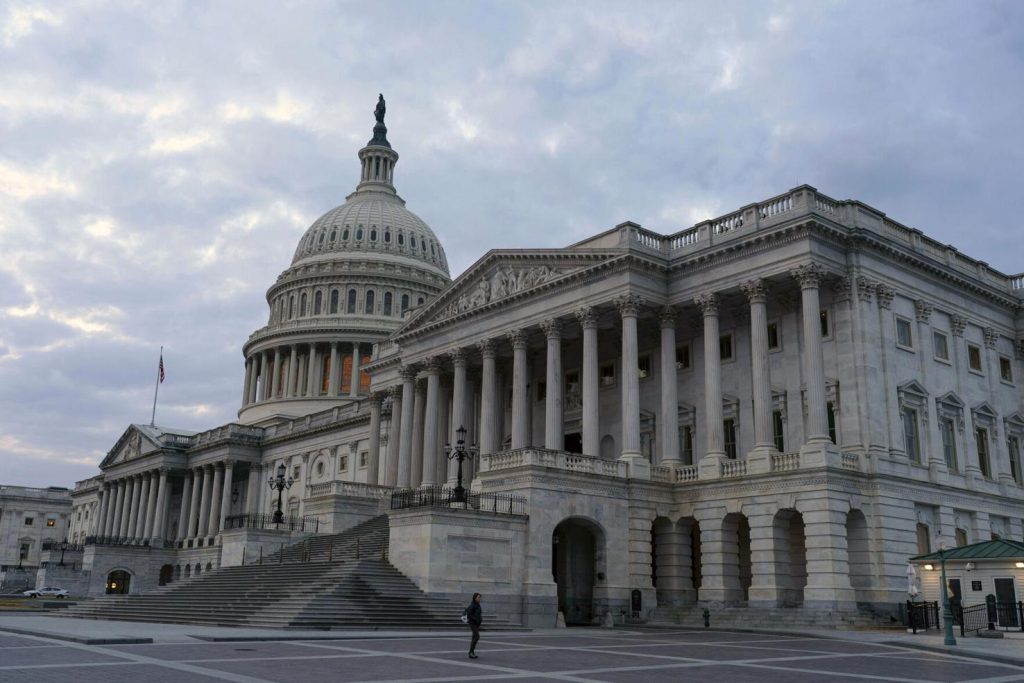In the wee hours of Saturday, Mar. 23, the U.. Senate passed a $1.2 trillion spending package, ending six months of turmoil on Capital Hill over 2024 appropriations. The package was expected to be signed by President Joe Biden over the weekend (AP Photo/Jose Luis Magana)
WASHINGTON, D.C. – Six months late, Congress finally completed work on the last of fiscal 2024 appropriations bills in the wee hours of the morning on Saturday, Mar. 23.
That $1.2 trillion funding package cleared the Senate by a 74-to-24 vote, sending the appropriations bills for the Pentagon; Financial Services; Homeland Security; the departments of Labor, Health & Human Services and Education; the State Department; and Congress itself to President Joe Biden’s desk just in time to avert a partial government shutdown.
Earlier on Mar. 22, that measure was passed by the House of Representatives by a 286-to-134 margin, a vote that left election-year political bad-blood that may cost House Speaker Mike Johnson (R-LA) his job.
As his predecessor — former Speaker Kevin McCarthy (R-CA) — did in the process of passing stopgap funding back in June of 2023, Johnson pulled together a coalition of moderate Republicans and Democrats to pass those final appropriations bills.
But 112 members of Johnson’s own Republican caucus voted against that funding package, along with 22 Democrats. That show of weakness prompted right-wing firebrand Rep. Marjorie Taylor Green (R-GA) to introduce a resolution to force Johnson to vacate the speaker’s chair.
The turmoil in the House was echoed in the Senate when its members considered the funding package.
“This legislation is truly a national security bill,” explained Sen. Susan Collins (R-ME), a moderate and the ranking Republican on the Senate Appropriations Committee.
“Seventy percent of the funding in this package is for our national defense, including investments that strengthen our military readiness and industrial base; provide pay and benefit increases for our brave service members; and support our closest allies.”
Despite Collins’ reassuring noises, 22 Republican in the Senate voted against the package, along with Senators Michael Bennet (D-CO) and Bernie Sanders (I-VT). Those two lawmakers argued in favor of amendments that would have added additional funding for embattled Ukrainians and Palestinians.
Most Senate Democrats were content, however, to settle for the spending package as it was, including new funding for border security, additional detention beds, border patrol agents and ports of entry officials.
The most vocal of the 22 dissenting Republicans was Sen. Rand Paul (R-KY).
“Congress is poised to do what no American family would ever do,” Paul warned fellow Republicans, “that is, spend a third more dollars than they receive.
“Somebody is going to be asked to pay for it. That’s going to be you,” Paul reminded American taxpayers.
Overall, the spending package passed by the House and Senate includes about $2 billion in earmarks and home-state projects added to sweeten the pot for fence-sitting supporters.
The much delaying spending package was expected to be signed into law by Biden over the weekend.

